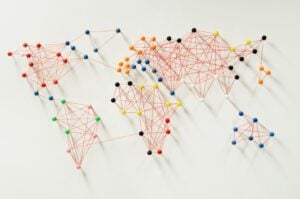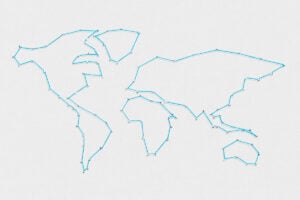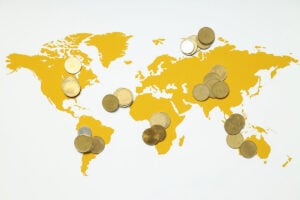Geopolitical turbulence is the operative phrase for understanding foreign policy, national security, international relations and grand strategy in 2024. Whether we have entered a global pre-war era, Cold War II, or a “world at war,” as scholars, historians, and journalists have recently posted, the potential 2024 crises across the global landscape are multiple.
In Asia, we are concerned about a possible China conflict against the Philippines over sovereignty in the South China Sea, or China’s military seizure of tiny Taiwanese islands just off the Chinese shore or in the South China Sea, given the lack of any political unification market in and after the upcoming Taiwan elections. In the geo-economic sphere, Washington’s effort to reshore supply chains away from China will fail under the growing number of Communist Party-run businesses that have begun “off-shoring” to southeast Asian markets such as Vietnam in anticipation of Hanoi’s elevated trade status, specifically to evade U.S. sanctions and to increase existing exports of predatorily priced Chinese goods into the U.S. market.
The Russian invasion of Ukraine was over but the carnage many months ago, as Moscow re-strategized and then remobilized with a stabilized war production economy after its initial tactical failures. Its economy and infrastructure having been destroyed, Ukraine is and will remain partitioned, as Russia consolidates its territorial gains in Crimea and the four eastern Ukrainian oblasts – with a possible eye towards seizing Odessa the longer a ceasefire is elusive. Any new Iron Curtain will likely only extend from Estonia to Poland, as Slovakia, Hungary, and Turkey have hesitated on Western hostility towards Russia, and most European countries have maintained deficient military budgets, contradicting their pronounced fears of a Russian threat to NATO in eastern and central Europe.
The Middle East war launched by Iran via its Hamas proxy will deny Palestinians amid a vast humanitarian crisis any hope of a “two-state” solution for years, as no credible governing authority for Gaza exists until Sunni Arab countries step forward. Iran will continue to feel emboldened to attack Israeli targets and U.S. regional assets given its tens of billions in oil export revenues of the past three years, as well as the White House desire to keep Tehran motivated in a second Biden term to enter into a renewed nuclear weapons deal. An Iranian nuclear breakout will generate nuclear weapons proliferation in Saudi Arabia and Egypt, as well as Turkey – especially as Washington more actively considers withdrawing the 50 or so nuclear warheads stored within an increasingly unreliable NATO ally’s territory. The U.S. may also seek to build an Arab naval alliance to help protect vital shipping lanes against Iranian-sponsored attacks in the Bab el-Mandeb Strait and near the Suez Canal.
The deindustrialization of Germany, and potentially the United Kingdom, will further expose the fallacy of unrealistic, unachievable, and increasingly costly net-zero emissions targets without tangible outcomes or benefits, while China, India, and many global South countries plan to produce and consume more coal, oil, and natural gas to power their economic growth for decades to come, and China tightens its grip on global solar panel, wind turbine, and battery electric vehicle supply chains forced upon advanced Western economies through massively distortional government subsidies.
India may become the true leader of the global South countries seeking to both sanctions-proof their economies from the U.S./EU-type regime leveled at Russia since the Ukraine invasion, and from the exploitative predatory lending that China has conducted under its decade-old Belt Road Initiative.
The collapse of the U.S. border with Mexico, and the illegal entry annually of millions of aliens from every part of the world – including an undetermined number of criminals, terrorists, and unvaccinated individuals – will further poison American presidential politics. The American citizenry is already opening to illiberal responses to questions about societal resilience and legitimate democratic governance, mirroring the decay in European liberalism, and we may experience the most serious third-party challenge in decades to the traditional two-party system.
The global order will further fray so long as the U.S. is unable to develop a robust domestic industrial production capability within an unprecedented cycle of national debt. Without such industrial might, Washington cannot re-launch, achieve, and sustain a credible strategy of deterrence, which has already failed against Russia and Iran, and may soon be tested by China, as all three regional powers continue to whittle away at global American leadership.
Geopolitical turbulence – the operative phrase for 2024.





